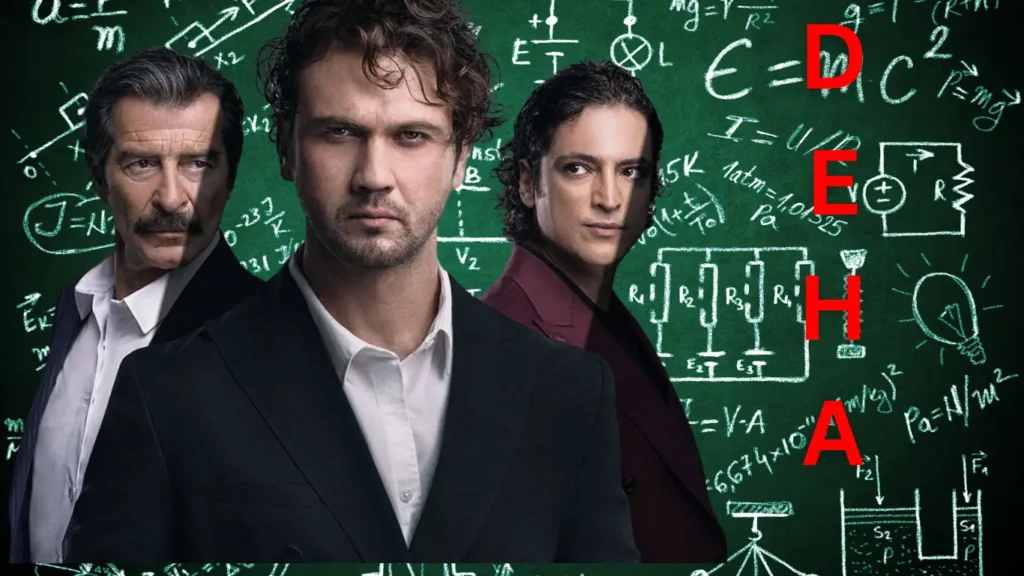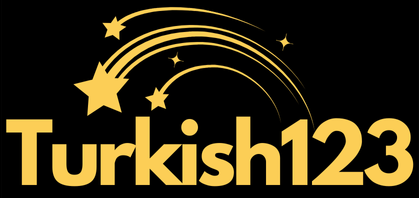

Deha Turkish Series
English title: Genius
The Turkish television landscape has been graced with a captivating new series that explores the intricate world of mathematical genius and family dynamics. “Deha,” which translates to “Genius” in English, introduces viewers to the compelling journey of Devran, a young prodigy whose extraordinary mathematical abilities unexpectedly shape his life. This gripping drama delves into the complexities of nurturing exceptional talent while navigating the turbulent waters of familial relationships and personal growth.
As we embark on this exploration of “Deha,” we’ll uncover the layers of storytelling that make this series a standout in the realm of Turkish dramas. From its nuanced character development to its thought-provoking themes, “Deha” offers a fresh perspective on the challenges and triumphs of those blessed—or perhaps burdened—with extraordinary gifts.
Devran The Premise: A Mathematical Prodigy’s Journey
At the heart of “Deha” lies the story of Devran, a young man whose mathematical prowess sets him apart from his peers. From an early age, Devran’s exceptional abilities in the world of numbers and equations become apparent, marking him as a true prodigy. The series skillfully portrays the double-edged nature of such talent, showcasing both the opportunities it presents and the pressures it imposes.
Devran’s journey is not merely one of academic achievement; it’s a profound exploration of identity, purpose, and the weight of expectations. As he navigates the complexities of his gift, viewers are invited to witness the internal struggles and external challenges that shape his path. The show raises poignant questions about the nature of Deha and its impact on personal relationships and societal perceptions.
The narrative unfolds against the backdrop of Devran’s family life, adding layers of complexity to his character development. His relationships with siblings, parents, and mentors play crucial roles in shaping his worldview and decisions. This intricate web of connections provides a rich tapestry for the series to explore themes of loyalty, ambition, and the search for belonging.
Devran Character Dynamics: A Tapestry of Relationships

“Deha” excels in its portrayal of multifaceted characters, each bringing depth and nuance to the overarching narrative. At the center is Devran, whose brilliance is matched only by his internal conflicts. His journey from a child prodigy to a young adult grappling with his place in the world forms the series’ backbone.
Surrounding Devran is a cast of characters that both support and challenge him:
- Iskender: Devran’s father, a complex figure whose actions and motivations drive much of the family drama.
- Siblings: Ferman, Yaman, Ceylan, and Boran, each with their unique relationship to Devran and their family legacy.
- Ali Haydar: A mentor figure who provides guidance and wisdom to Devran.
- Esme: Devran’s girlfriend, who represents a connection to a world beyond mathematics.
These relationships are not static; they evolve and shift as the series progresses, reflecting the dynamic nature of family ties and personal growth. The interactions between characters serve as catalysts for major plot developments and character arcs, keeping viewers engaged and emotionally invested.
The Mathematical World: More Than Just Numbers
One of the most intriguing aspects of “Deha” is its approach to portraying mathematics. Rather than relegating it to the background, the series brings the beauty and complexity of mathematical concepts to the forefront. Viewers are treated to glimpses of Devran’s thought processes, visualizations of complex equations, and the real-world applications of theoretical mathematics.
This focus on mathematics serves multiple purposes within the narrative:
- It provides a unique lens through which to view the world, offering insights into Devran’s perspective.
- It is a metaphor for life’s orderly and chaotic aspects, mirroring the characters’ experiences.
- It creates tension and excitement, particularly in scenes where Devran’s abilities are tested.
The show’s creators have made these mathematical elements accessible to a general audience while maintaining their integrity. This balance allows “Deha” to appeal to both math enthusiasts and those who might typically shy away from the subject.
Deha Themes Explored: Beyond the Numbers
While mathematics plays a central role in the series, it explores a wide range of themes that resonate with viewers on a deeply human level. Some of the key themes include:
The Nature of Genius
The show delves into what it means to be a genius, examining both the gifts and burdens that come with exceptional abilities. It raises questions about the responsibility of those with great talent and the societal expectations placed upon them.
Family Dynamics and Legacy
The series offers a nuanced portrayal of family relationships, exploring how talent and ambition can unite and divide. It examines the impact of parental expectations, sibling rivalries, and the weight of family legacy on individual choices.
Ethics and Morality in Achievement
As Devran navigates the world of academia and professional opportunities, the show tackles ethical dilemmas related to success and achievement. It prompts viewers to consider the moral implications of using one’s talents and the boundaries between ambition and integrity.
Identity and Self-Discovery
Throughout the series, Devran grapples with questions of identity. His journey of self-discovery resonates with viewers who have struggled to reconcile their talents with their sense of self.
The Role of Mentorship
The relationship between Devran and his mentor, Ali Haydar, highlights the importance of guidance and wisdom in nurturing talent. This theme explores the impact of positive role models and knowledge transfer across generations.
Visual Storytelling: Bringing Mathematics to Life

One of the most striking aspects of the series is its visual approach to storytelling, particularly in how it represents mathematical concepts. The series employs a range of techniques to make abstract ideas tangible and engaging for viewers:
- Animated Visualizations: Complex equations and theorems come to life through dynamic animations, allowing viewers to “see” mathematics in action.
- Split-Screen Sequences: The show often uses split-screen techniques to juxtapose Devran’s thought processes with real-world events, illustrating the connection between theory and application.
- Symbolic Imagery: Mathematical symbols and patterns are woven into the visual fabric of the show, appearing in unexpected places to reinforce the omnipresence of mathematics in Devran’s world.
These visual elements not only enhance the viewer’s understanding of the mathematical concepts at play but also contribute to the series’ overall aesthetic. The result is a visually stunning production that stands out in the landscape of Turkish dramas.
The Cultural Context: Mathematics in Turkish Society
“Deha” offers a unique perspective on the role of mathematics and academic achievement in Turkish society. The series explores:
- There is pressure on gifted students to excel and represent their country on the global stage.
- The cultural value placed on education and intellectual pursuits.
- The challenges faced by those who deviate from traditional career paths.
The series examines these aspects to provide insight into contemporary Turkish society and its relationship with academic excellence. This cultural context adds depth to the narrative and makes the series relatable to a wide audience.
Character Development: The Evolution of Devran
As the central figure of “Deha,” Devran undergoes significant character development throughout the series. His journey from a child prodigy to a young adult grappling with the implications of his genius is marked by several key phases:
- The Wonder Years: Devran’s early childhood, where his extraordinary abilities first become apparent.
- Academic Triumphs: His rise through academic institutions, facing challenges and achieving recognition.
- Ethical Dilemmas: Encounters with moral quandaries that force him to question the use of his talents.
- Personal Conflicts: He struggles with relationships and identity as he tries to balance his genius with a normal life.
- Maturation and Purpose: The evolution of Devran’s understanding of his role in the world and the responsibilities that come with his gifts.
Each of these phases is carefully crafted to show the multifaceted nature of Devran’s character, allowing viewers to connect with him on various levels. The series excels in portraying the internal conflicts and external pressures that shape Devran’s growth, making his journey both relatable and inspiring.
The Supporting Cast: Depth Beyond the Protagonist
While Devran is undoubtedly the focal point of “Deha,” the supporting characters are far from mere background players. Each member of the cast brings depth and complexity to the narrative:
Iskender: The Flawed Father Figure
Iskender’s character serves as a foil to Devran, representing the path of compromise and moral ambiguity. His actions drive much of the family drama and provide a counterpoint to Devran’s idealism.
The Siblings: Varied Perspectives on Family and Talent
Ferman, Yaman, Ceylan, and Boran each offer unique viewpoints on growing up in the shadow of a prodigy. Their individual stories and relationships with Devran add layers of complexity to the family dynamic.
Ali Haydar: The Wise Mentor
As Devran’s mentor, Ali Haydar represents the positive influence of guidance and wisdom. His character explores the theme of legacy and the passing of knowledge between generations.
Esme: The Bridge to Normalcy
Devran’s girlfriend, Esme, serves as a connection to the world outside of mathematics. Her presence in the story raises questions about balance and pursuing a well-rounded life.
These characters and others introduced throughout the series create a rich tapestry of relationships and conflicts that drive the narrative forward.

The Role of Education in “Deha”
Education plays a central role in “Deha,” serving as both a backdrop for the story and a thematic element in its own right. The series explores various aspects of the educational system:
- The pressure cooker environment of elite academic institutions
- The role of mentorship and guidance in nurturing talent
- The limitations of traditional education in accommodating exceptional students
- The impact of academic success on personal and family relationships
Through Devran’s experiences, “Genius” critiques educational practices and raises questions about how society can best support and develop extraordinary talents.
Ethical Dilemmas: The Price of Genius
Devran encounters numerous ethical dilemmas as he navigates the world of academia and professional opportunities. These situations force him to grapple with difficult questions:
- Is it ethical to use one’s talents for personal gain at the expense of others?
- How does one balance the pursuit of knowledge with moral responsibility?
- What obligations do the gifted have to society?
These ethical quandaries add depth to the narrative and provide opportunities for character growth. They also engage viewers in thought-provoking discussions about the nature of genius and its place in society.
The Impact of Family on Genius
Family plays a crucial role in shaping Devran’s journey. The series explores how family dynamics can both nurture and hinder the development of exceptional talent:
- The pressure of parental expectations
- Sibling relationships in the shadow of a prodigy
- The impact of family history and legacy on individual choices
- The struggle to maintain familial bonds in the face of diverging paths
“Deha” examines the complex interplay between individual talent and family identity through these familial relationships.
Conclusion: The Lasting Impact of “Genius”
“Genius” stands out as a unique entry in the landscape of Turkish dramas, offering a compelling blend of intellectual stimulation and emotional depth. By following Devran’s journey from child prodigy to young adult, the series explores universal themes of identity, purpose, and the nature of genius.
The show’s innovative approach to visualizing mathematical concepts, nuanced character development, and exploration of ethical dilemmas create an entertaining and thought-provoking viewing experience. The series challenges viewers to consider the role of exceptional talent in society and the responsibilities that come with great gifts.
As the series progresses, it continues to captivate audiences with its drama, intellectual discourse, and visual storytelling blend. The series not only entertains but also inspires viewers to reflect on their potential and their impact on the world around them.
In the end, “Genius” is more than just a story about a mathematical genius; it’s a profound exploration of what it means to be human in a world that often struggles to understand and accommodate exceptional talents. It’s a testament to the power of Turkish drama to tackle complex themes and deliver compelling, thought-provoking entertainment.
You may also like :
Turkish Series
Kudus Fatihi Selahaddin Eyyubi: Turkish Series
Kalpazan Cast Plot And Summary – Turkish Series
Siyah Kalp: Black Heart: A Captivating Turkish Drama
Hudutsuz Sevda (The Brave) – Turkish Dramas 2023
Karadut Turkish Dramas Synopsis – 2024
Leyla Hayat Ask Adalet – Turkish Series 2024
External links :
IMDb: Deha (Genius)
FAQ
- What is Deha about?
Deha follows the story of Devran, a young mathematical prodigy, exploring his journey of personal growth, family dynamics, and the challenges of exceptional talent. - Who is the main character in Genius?
The main character is Devran, a young man with extraordinary mathematical abilities who navigates academic success, personal identity, and family relationships. - What themes does Deha explore?
Deha delves into themes like the nature of genius, family bonds, ethical dilemmas in achievement, identity, and the importance of mentorship. - Is Genius suitable for all audiences?
Genius is a family-friendly drama combining intellectual themes with relatable, emotional storytelling. - What makes Genius unique among Turkish dramas?
Genius stands out for its focus on intellectual stimulation, visual storytelling of mathematics, and a profound exploration of human emotions. - Where can I watch Deha?
Availability will depend on your region, so check local streaming services for Turkish dramas. - Does Genius involve actual mathematics concepts?
Genius brings mathematical ideas to life with visualizations, enhancing the story and viewers’ understanding of the protagonist’s genius.






